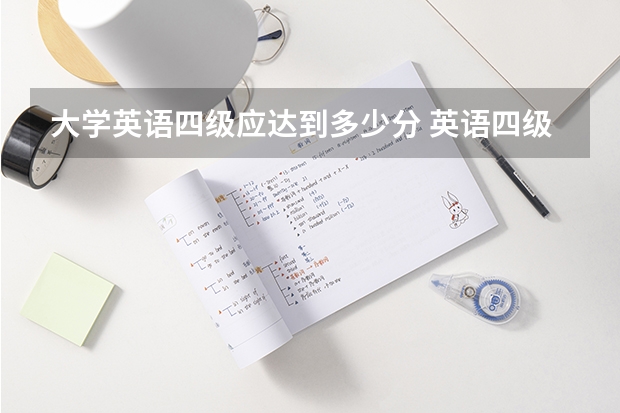大学英语四级考试真题8 大学英语四级词汇训练试题及答案
2023-09-16 04:39:56 | 蜕变培训网

大学英语四级词汇训练试题及答案
大学英语四级词汇训练试题及答案 篇1
1.Ten years later, that man was _______ from prison.
A.shut B. released C. penetrated D. elected
2.I _______ you’ve decided against taking my advice.
A.express B. declare C. assume D. exclude
3.I wrote to my aunt last night. I couldn’t _______ it any longer.
A.delay B. reply C. rely D. opposite
4.I imagine I’ll _______ some friends instead of going to the movies.
A.envy B. interest C. entertain D. courage
5.A________ thing happened to me last night.
A. sake B. peculiar C. baggage D. average
6.It was a terrible _______ and I won’t forget it.
A. shock B.vessel C.royal D.evidence
7.Mary is always _______ when she doesn’t get any mail.
A.affected B.dissed C.plain D.disturbed
8.Each member has a chance to _______ his argument in the conference.
A.present B.recall C.stock D.council
9.I wish you would give me a more detailed _______ of you trip.
A.account B.advance C.accuse D.count
10.What time is the mail _______ on Saturday?
A.objected B.outlet C.delivered D.starved
11.What’s the price of that _______ of potatoes?
A.beg B.pig C.pint D.sack
12.You don’t have to pay any _______ on personal belongings.
A.price B.duty C.expense D.elevator
13.Mary is too weak to _______ the piano across the room.
A.apply B.appeal C.attract D.drag
14.I was crossing the street and was almost _______ by car.
A.attacked B.dicked C.hit D.held
15.Do you have anything to _______ for customs?
A.show B.declare C.exam D.check
16.He worked hard this week, but _______ very little.
A.presented B.obeyed C.composed D.accomplished
17.Will you accept my _______?
A.sympathy B.synthetic C.satellite D.saddle
18.In general, my reaction is that we should _______ carefully.
A.proceed B.pace C.pale D.pan
19.Along the northern coast there are many deep _______.
A.divers B.harbors C.bats D.bars
20.Nobody knows who will be the _______ of this city.
A.mayor B.inhabitant C.dash D.bow
21.Food _______ is a big industry in this area.
A.projecting B.promising C.processing D.president
22.We never _______ that John would become a doctor.
A.respected B.wondered C.suspected D.estimated
23.Don’t be too _______ on your children. They are still too young.
A.shine B.internal C.copper D.severe
24.Greater efforts are needed before we can _______ our goal.
A.dozen B.attain C.avenue D.reward
25.Eggs are _______ according to size. 蜕变培训网
A.passed B.judged C.graded D.chained
26.He worked in our university as a football _______ for nearly five years.
A.clerk B.grain C.coach D.couch
27.The _______ in the river has to be rebuilt.
A.court B.cousin C.dam D.damp
28.He designed an experiment in order to _______ his theory.
A.demonstrate B.proof C.defense D.grasp
29.Heavy taxed are _______ on wines imported from the other countries.
A. imposed B.trgistered C.splashed D.thudered
30.I would like to visit you and _______ our friendship but in fact I can not come.
A.rent B.renew C.mouse D.spot
31.This factory is planning to build a new _______ line this year.
A.resemble B.assembly C.productive D.assess
32.Meat _______ much more easily than vegetables.
A. loses B.numerous C.weaves D.decays
33.Dr. Smith is _______ in his research and does not know anything about politics.
A.shut B.typed C.defeated D.absorbed
34. He said he would _______ me to Mr. Li but he didn’t .
A.comment B.suggest C.command D.recommend
35.A magnificent monument has been _______ in Tian An Men Square in honor of the people’s heroes.
A.envied B.erected C.created D.curved
36.In this kind of hotel, there are no _______ rooms.
A. luxury B.marvelous C.occasional D.sulphur
37.Nothing can _______ me to leave my own country.
A.verse B.hay C.tempt D.attempt
38.Nobody in the class can _______ him of his mistake.
A.believe B.admit C.thirst D.convince
39.This tree is _______ for its beautiful flowers.
A.hooked B.stemmed C.cultivated D.parceled
40.He _______ his success to the good education he has received.
A.distributes B.contributes C.attributes D.owns
41.Professor Smith seldom _______ the class on time.
A.dismisses B.nervous C.misleads D.regrets
42.Mr. Wang _______ his wife and children when he went to the United States.
A.prescribed B.delayed C.decreased D.deserted
43.He _______ a lot of time in trying to develop the education system in this area.
A. involved B.investigated C.invested D.interfered
44.They spent many years _______ for oil in this small island.
A.exploring B.exploding C.exposing D.exploiting
45.We can’t _______ the fact that we are still a developing country.
A. ignore B.neglect C.imagine D.impress
46.Can you _______ the man who robbed you of your watch?
A. illustrate B.exhibit C.damage D.identify
47.Many children in developing countries can not go to school,because of _______
A.property B.sword C.trace D.poverty
48.What is your _______ to his coming?
A.altitude B.attitude C.attribute D.aspect
49.He _______ into the water and rescued the little girl.
A. ed B.sloped C.heaped D.dived
50.You may _______ of the extra books in our department library.
A.deposit B.enclose C.fade D.dispose
答案:1.B 2.C 3.A 4.C 5.B 6.A 7.D 8.A 9.A 10.C 11.D 12.B 13.D 14.C 15.B 16.D 17.A 18.A 19.B 20.A 21.C 22.C 23.D 24.B 25.C 26.C 27.C 28.A 29.A30.B 31.B 32.D 33.D 34.D 35.B 36.A 37.C 38.D 39.C 40.C 41.A 42.D 43.C 44.A 45.A 46.D 47.D 48.B 49.D 50.D[/move]
大学英语四级词汇训练试题及答案 篇2
1.They ____the report to the State Council for approval.
A)made B)leave out C)committed D)admitted
2.I ought to have insisted on ____ a thorough rest before you left for New York.
A)you to take B)your taking C)that you take D)you taking
3.A table made of steel costs more than ____ made of wood.
A)that B)which C)one D)it is
4.Now we have got so far with the project,we ____ finish it.
A)can as well B)should as well C)would as well D)may as well
5.Their plan is not economically____.
A)efficient B)feasible C)advisable D)urgent
6.Our teacher’s reading is of very wide____ .
A)extent B)range C)limit D)border
7.I ____ some old photos in the attic
A)came through B)came to C)came round D)came across
8.I prefer to put the meeting off____ it without adequate preparations.
A)than hold B)rather than hold C)than to hold D)rather than to hold
9.It was not ____ midnight that they discovered the children were not in their beds.
A)before B)at C)after D)until
10.Most doctors recognize that medicine is ____ it is a science.
A)an art as much B)much an art as C)as an art as much D)as muchan art as
答案与解析:
1.C 译文:他们把这个报告提交给国务院批准。解析:A.made 制,做。B.leave out 省去,略去。C.committed 把……提交给,commit…to…把……提交给……。D.admitted 接纳,纳容。均不合题意。结合上下文题意,C为正确答案。
2.B 译文:我该坚持让你去美国之前做一次彻底检查的。解析:insist on...坚持……,后动名词作宾语,据此A.C被排除。动名词的逻辑主语应用形容词性物主代词;不能用人称代词或其宾格形式引出。因此,只有B答案符合要求。
3.C 译文:钢制的桌子比用木头制的桌子价格贵些。解析:B.which 不能用于此处,因为不是定语从句。D.it is 用于此处,结构错误。one和that都可以用来代替前边出现过的名词,但如果名词是单数可数名词。则用 (the) one 代替,据此C为最佳答案。
4.D 译文:既然这项工程我们已经进行了这么多,我们还是把它完成的好。解析:may as well还是……的好,固定搭配,其它各项均无此意思。
5.B 译文:从经济的角度来看,他们的计划是不可行的。解析:A.efficient 有效的.,效率高的。指具体的行动或方法产生预期的效果而不浪费时间,精力等。计划只是一个笼统的概念,故不能用efficient来描述。 C..advisable明智的,合理的,用来描述具体的作法,行动或想法等。e.g Is it advisable to stay here?留在这里合适吗?plan不是具体的行动,故不能用advisable来修饰。D.urgent紧急的,紧迫的,用于此处语义不通顺。 B.feasible可行的,行得通的。经常用来表述计划或一系列措施的可行性。用于此处恰当,故B是正确答案。
6.B 译文:我们老师的阅读范围非常广泛。解析:A.extent 长度,范围,大小。指一块土地的面积大小的范围。B.range范围,领域。既可以指一块土地,又可以用来指抽象的“领域,范围”。C.limit 限度,界线,一般不用 wide 修饰,因为 limit 本身含有“被束缚,被限制的范围”的意思。D.border边界,界线,多用于指国与国之间的边界或边境地区。综上分析,可以看出只有B答案适合用于此处。
7.D 译文:我在屋顶阁楼上意外发现几张旧照片。解析:A.come through 接通(电话)。B.come to 苏醒,涉及;C.come round 来,到来,恢复健康。以上三项均与题意无关。D.come across 碰到,意外遇见。符合题意,因此D是正确答案。
8.B 译文:我宁可推迟开会也不愿开准备不充分的会。解析:prefer后接两个不定式相比较时,只能用rather than, rather than 后跟不带to的不定式。故此B项正确。
9.D 译文:直到午夜,他们才发现孩子不在床上。解析:not...until...直到…才…,固定句式。
10.D 译文:大多数医生都承认医学既是一门科学,也是一门艺术。解析:as much...as ...是固定结构,意为“……程度一样”。又如:This is as much our responsibility as yours.这既是你们的责任,也是我们的责任。

大学英语四级考试听力真题原文
下面是我整理的大学英语四级考试听力真题原文,希望对大家有帮助。
2013年6月大学英语四级真题-听力原文
Part III Listening Comprehension
Section A
Directions:In this section, you will hear 8 short conversations and2 long conversations. At the end of each conversation, one or more questions will be asked about what was said. Both the conversation and the questions will be spoken only once. After each question there will be a pause. During the pause, you must read the four choices marked A), B), C) and D), and decide which is the best answer. Then mark the corresponding letter on Answer Sheet 2 with a single line through the center.
11. W: What are you doing in here, Sir? Didn't you see the private sign over there?
M: I'm sorry. I didn't notice it when I came in. I'm looking for the manager's office.
Q: What do we learn from the conversation?
12. W: Mike, what's the problem? You've known from month the report is due today.
M: I know, but I'm afraid I need another few days. The data is hard to interpret than I expected.
Q: What does the man mean?
13. W: Excuse me, Tony. Has my parcel from New York arrived?
M: Unfortunately, it's been delayed due to the bad weather.
Q: What is the woman waiting for?
14. W: Pam said we won't have the psychology test until the end of next week.
M: Ellen, you should know better than to take Pam's words for anything.
Q: What doesthe man imply about Pam?
15. W: Tom, would you please watch my suitcase for a minute? I need to go make a quick phone call.
M: Yeah, sure. Take your time. Our train doesn‘t leave for another twenty minutes.
Q: What does the man mean?
16. M: Frankly, Mary is not what I'd called easy-going.
W: I see. People in our neighborhood find it hard to believe she's my twin sister.
Q: What does the woman imply?
17. M: How soon do you think this can be cleaned?
W: We have same day service, sir. You can pick up your suit after five o'clock.
Q: Where does the conversation most probably take place?
18. W: I really enjoy that piece you just play on the piano. I bet you get a lot of requests for it.
M: You said it. People just can't get enough of it.
Q: What do we learn from the conversation?
Section B
Questions 19-22 are based on the conversation you have just heard.
W: Good afternoon, Mr. Jones. I am Teresa Chen, and I‘ll be interviewing you. How are you today?
M: I am fine, thank you. And you, Miss Chen?
W: Good, Thanks. Can you tell me something about your experience in this kind of work?
M: Well, for several years, I managed a department for the Brownstone Company in Detroit, Michigan. Now I work part time because I also go to school at night. I‘m getting a business degree.
W: Oh, how interesting. Tell me, why do you want to leave your present job?
M: I‘ll finish school in a few months, and I’d like a full-time position with more responsibility.
W: And why would you like to work for our company?
M: Because I know your company‘s work and I like it.
W: Could you please tell me about your special skills and interests?
M: Of course, I‘m good at computers and I can speak Spanish. I used to take classes in Spanish at the local college. And I like travelling a lot.
W: Can you give me any references?
M: Yes, certainly. You can talk to Mr. McCaw, my boss, at the Brownstone Company. I could also give you the names and numbers of several of my teachers.
W: All right, Mr. Jones, and would you like to ask me any questions?
M: Yes, I wonder when I‘ll be informed about my application for the job.
W: Well, we’ll let you know as soon as possible. Let‘s stay in touch. Thank you very much for coming this afternoon.
M: Thank you. Questions 19-22 are based on the conversation you have just heard.
19. What does the man say about his working experience?
20. Why does the man want to leave his present job?
21. What is the man interested in?
22. What question did the man ask the woman?
Questions 23-25 are based on the conversation you have just heard.
M: Lisa, Lisa! Over here, darling! It's wonderful to see you. Oh, Lisa, you look marvelous.
W: Oh, Paul, you look tired. Two months away in the capital? Paul, I think you've been working too hard.
M: I'm fine. The city is very hot this time of the year. It's good to get back to some fresh air. You know, Lisa, what they say about pregnant women really is true.
W: What's that Paul?
M: They say they look beautiful.
W: Well, I had a lot of tension while you've been studying hard on your course in D.C.
M: Oh?
W: Oh, don't worry, all from a man over
50. Father has told all his business friends the good news about the baby. And the phone hasn't stopped ringing.
M: Oh, look, darling. There's a taxi.
W: Paul, tell me about the special project you mentioned on the phone. You sounded very excited about it!
M: You know, I've learned a lot from the project. I'm surprised that was still in business.
W: That's because we have a wonderful sales manager ——you!
M: Thanks. But that's not the problem at all. Lisa, our little company, and it is little compared to the giants in the city. Our little company's in danger. We are out of date.We need to expand. If we don't, we will be swallowed up by one of the giants.
Questions 23-25 are based on the conversation you have just heard.
23. What do we learn about Lisa?
24. What do we learn about the man from the conversation?
25. What does the man say about his company?
Section C
Passage 1
Questions 26 to 29 are based on the passage you have just heard.
Farmington, Utah, is a more pleasant community since a local girls' 4-H club improved Main Street. Six 4-H girls worked to clean the 72 foot curbside that was covered with weeds, rocks and trash. Each member volunteered to clean up and to dig in plot, five flats of flowers. They also took terms in watering, weeding and maintaining the plot. Participation in this project helped the girls developed a new attitude towards their parents of their own homes; they've learned how to work with tools, and improve their work habits. One mother said that before her daughter was involved in this project, she would not even pour a weed. The experience on Main Street stimulated self-improvement, and encouraged members to take pride in their home grounds and the total community. City officials cooperated with the 4-H members in planting trees, building cooking facilities, pick-me tables, swings and public rest rooms. The 4-H girls planted trees and took care of them during the early stages of growth. The total park project needed more plantings in the following years. Members of the 4-H club agreed to follow the project through to completion, because they receive satisfaction from the results of constructive work. The project is a growing one and is spread from the park to the school and the shopping center. Trees and flowers have all been planted in the shopping center, making the atmosphere pleasant.
Questions 26 to 29 are based on the passage you have just heard.
26. What do we learn about Main Street in Farmington?
27. What do the 4-H club members do about the curbside?
28. What have the 4-H girls learned from the project?
29. Why do the 4-H girls agree to follow the park project through to complete. Question 30 to 32 are based on the passage you have just heard. Passage 2 According to a survey on reading conducted in 2001 by the U.S. National Education Association (NEA), young Americans say reading is important, more important than computers and science. Over 50% of the 12 to 18 years old interviewed say they enjoy reading a lot. 79% find it stimulating and interesting. And 87% think it is relaxing. About 68% of those surveyed disagreed with the opinion that reading is boring or old-fashioned. Over half teenagers interviewed said they read more than ten books a year. The results also show that middle school students read more books than high schoolers. Over 66% of teens like to read fiction, such as novels and stories. Over 26% are interested in non-fiction, such history books.64% of students listed reading stories about people my own age. That's a favorite topic. Mysteries and detective stories came second on the list at 53%. Just under 50% said they were interested in reading about their own culture in tradition. Of the teenagers who participated in the survey, 49% said that libraries are where they get most of their books. However, many complain that their school libraries do not have enough up-to-date interesting books and magazines. Even though many teenagers in the US enjoy reading, they still have other interests. When asked which activity would be the most difficult to give up for a week, 48% said listening to music. TV would be difficult to give up for 25% of those surveyed.
Question 30 to 32 are based on the passage you have just heard.
30. What does the survey on teenager reading show?
31. What books are most popular among teenagers according to the survey?
32. What activity do teenagers find the most difficult to give up for a week?
Questions 33-35 are based on the passage you have just heard.
Passage 3
Thank you for coming, everyone. Today‘s presentation will show how we see the development of the motor car in the short to medium term, and that is why we have invited all of you here today. Let’s start with power. It‘s clear that petrol-driven engines have no future. Already there are many alternative fuel vehicles on the market, powered by anything from solar power to natural gas. Some independent thinkers have even produced cars that run on vegetable oil. But as we all know, of all these alternative fuel vehicles, the most practical are electric vehicles. Sure, in the past electric vehicles have their problems, namely, a limited driving range, and very few recharging points, which limited their use. Now, however, recent developments in electric vehicle technology mean they can match conventional petrol engines in terms of performance and safety. Let’s not forget that electric vehicles are cleaner. Plus, importantly, the power source is rechargeable, so this does not involve using any valuable resources. Moving on to communications, very soon, cars will be linked to GPS satellites, so they‘ll do all the driving for you. What controls remain for the users will be audio-based, so, for example, you’ll just have to say “a bit warmer”, and the air conditioning will adjust automatically. You‘ll also be able to receive email, music and movies, all via an internet link. So just type in the destination you want, sit back, sleep, watch your movie, whatever. Questions
33-35 are based on the passage you have just heard.
33. What is the presentation mainly about?
34. What used to restrict the use of electric vehicles?
35. What does the speaker say about electric vehicles of today?

2014年6月大学英语四级听力真题及答案
再过半个月就要进行英语四级考试了,这时候同学们可以赶紧做做真题来找到考试的感觉,通过做真题你会发现一些规律,找到解题方法。为大家准备了2014年6月英语四级考试听力真题及答案,一起来看看吧!有需要的朋友可以收藏起来!
2014年6月大学英语四级听力真题及答案
Listening Comprehension (30 minutes) Section A
Directions: In this section, you will hear 8 short conversations and 2 long conversations. At the end of each conversation, one or more questions will be asked about what was said. Both the conversation and the questions will be spoken only once. After each question there will be a pause. During the pause, you must read the four choices marked A), B), C) and D), and decide which is the best answer. Then mark the corresponding letter on Answer Sheet 1 with a single line through the centre.
注意:此部分试题请在答题卡1上作答。
1. A. See a doctor about her strained shoulder B.Use a ladder to help her reach the tea. C.Replace the cupboard with a new one. D.Place the tea on a lower shelf next time.
1. W: I can’t seem to reach the tea at the back of the cupboard。 M: Oh„ Why don’t you use the ladder? You might strain your shoulder。 Q: What does the man suggest the woman do?
2. A. At Mary Johnson’s B. In an exhibition hall C. At a painter’s studio. D. Outside an art gallery.
2. W: Since it’s raining so hard, let’s go and see the new exhibits。 M: That’s a good idea. Mary Johnson is one of my favorite painters。 Q: Where does the conversation most probably take place?
3. A. The teacher evaluated lacks teaching experience.
B. She does not quite agree with what the man said. C. The man had better talk with the students himself. D. New students usually cannot offer a fair evaluation.
3. M: I hear the students gave the new teacher an unfair evaluation。 W: It depends on which student you are talking about。 Q: What does the woman imply?
4. A. He helped Doris build up the furniture. B. Doris helped him arrange the furniture. C. Doris fixed up some of the bookshelves. D. He was good at assembling bookshelves.
4. W: It must have taken you a long time to fix up all these book shelves。 M: It wasn’t too bad. I got Doris to do some of them。 Q: What does the man mean?
5. A. He doesn’t get on with the others. B. He doesn’t feel at ease in the firm. C. He has been taken for a fool. D. He has found a better position.
5. W: Rod, I hear you’ll be leaving at the end of this month. Is it true?
M: Yeah. I’ve been offered a much better position with another firm. I’d be a fool to turn it down。 Q: Why is the man quitting his job?
6. A. They should finish the work as soon as possible. B. He will continue to work in the garden himself. C. He is tired of doing gardening on weekends. D. They can hire a gardener to do the work.
6. W: I honestly don’t want to continue the gardening tomorrow, Tony? M: Neither do I. But I think we should get it over with this weekend。 Q: What does the man mean?
7. A. The man has to get rid of the used furniture. B. The man’s apartment is ready for rent. C. The furniture is covered with lots of dust. D. The furniture the man bought is inexpensive.
7. W: You’ve already furnished your apartment? M: I found some used furniture that was dirt cheap。 Q: What do we learn from the conversation?
8. A. The man will give the mechanic a call. B. The woman is waiting for a call. C. The woman is doing some repairs. D. The man knows the mechanic very well.
8. W: Has the mechanic called the bus repairers?
M: Not yet .I’ll let you know when he calls。 Q: What do we learn from the conversation?
9. A. She had a job interview to attend. B. She was busy finishing her project. C. She had to attend an important meeting. D. She was in the middle of writing an essay.
Question: 9. Why couldn’t the woman’s roommate attend the Shakespearean English class that afternoon? W: Nothing, it’s just that she submitted a job application yesterday and the company asked her in for an interview today. She’s afraid she won’t be able to attend your class this afternoon though. I’m calling to see whether it would be OK if I gave you her essay. Janet said it’s due today。
10. A. Accompany her roommate to the classroom. B. Hand in her roommate’s application form. C. Submit her roommate’s assignment. D. Help her roommate with her report.
Question: 10. What favor is the woman going to do for her roommate?
11. A. Where Dr. Ellis’s office is located. B. When Dr. Ellis leaves his office. C. Directions to the classroom building. D. Dr. Ellis’s schedule for the afternoon.
Question: 11. What does the woman want to know at the end of the conversation?
W: Fine, please tell her I’ll be there at 4:00. And Dr. Ellis, one more thing, could you tell me where your office is? Janet told me where your class is, but she didn’t give me directions to your office。
12. A. He find it rather stressful. B. He is thinking of quitting it. C. He can handle it quite well. D. He has to work extra hours.
Question: 12. What does the man say about his job?
M: Not bad, Jane. I’m involved in several projects and it’s a long working day. But I’m used to that so it doesn’t bother me too much。
13. A. The 6:00 one B. The 6:30 one. C. The 7:00 one D. The 7:30 one Question: 13. Which train does the man take to work every day?
M: It was terrible at first, especially getting up before dawn to catch that 6:30 train. But it’s bearable now that I’ m used to it。
14. A. It is an awful waste of time. B. He finds it rather unbearable. C. The time on the train is enjoyable. D. It is something difficult to get used to.
Question: 14. How does the man feel about commuting to work every day now?
W: Don’t you think it’s an awful waste of time? I couldn’t bear to spend three hours sitting in a train every day。
M: I used to feel the same as you. But now I quite enjoy it。
15. A. Reading newspaper. B. Chatting with friends. C. Listening to the daily news. D. Planning the day’s work.
Question: 15. How does the man spend his time on the morning train?
W: How do you pass the time? Do you bring some work with you to do on the train?
M: Ah, that’s a good question. In the morning, I just sit in comfort and read the papers to catch up with the news. On the way home at night, I relax with a good book or chat with friends or even have a game of bridge。
Section B
Directions: In this section, you will hear 3 short passages. At the end of each passage, you will hear some questions. Both the passage and the questions will be spoken only once. After you hear a question, you must choose the best answer from the four choices marked A), B), C) and D). Then mark the corresponding letter on Answer Sheet 1 with a single line through the centre.
注意:此部分试题请在答题卡1上作答。
Passage One
Questions 16 to 18 are based on the conversation you have just heard.
16. A) Ignore small details while reading. B) Read at least several chapters at one sitting. C) Develop a habit of reading critically.
D) Get key information by reading just once or twice.
Question: 16. What should American college students do to cope with their heavy reading assignments?
17. A) Choose one’s own system of marking. B) Underline the key words and phrases. C) Make as few marks as possible. D) Highlight details in a red color.
Question: 17. What suggestion does the speaker give about marking a textbook?
18. A) By reading the textbooks carefully again. B) By reviewing only the marked parts. C) By focusing on the notes in the margins. D) By comparing notes with their classmates.
Question: 18. How should students prepare for an exam according to the speaker?
Passage Two
Questions 19 to 21 are based on the conversation you have just heard
19. A) The sleep a person needs varies from day to day. B) The amount of sleep for each person is similar. C) One can get by with a couple of hours of sleep. D) Everybody needs some sleep for survival.
Question: 19. What is taken for granted by most people?
20. A) It is a made-up story. B) It is beyond cure. C) It is a rare exception. D) It is due to an accident.
Question: 20. What do doctors think of Al Herpin's case?
21. A) His extraordinary physical condition. B) His mother’s injury just before his birth. C) The unique surroundings of his living place. D) The rest he got from sitting in a rocking chair.
Question: 21. What could have accounted for Al Herpin's sleeplessness?
Passage Three
Questions 22 to 25 are based on the conversation you have just heard.
22. A) She invested in stocks and shares on Wall Street. B) She learned to write for financial newspapers. C) She developed a strong interest in finance. D) She tenderly looked after her sick mother.
Question: 22. What do we learn about Hetty Green as a child?
23. A) She made a wise investment in real estate. B) She sold the restaurant with a substantial profit. C) She got 1.5 million dollars from her ex-husband. D) She inherited a big fortune from her father.
Question: 23. How did Hetty Green become rich overnight
24. A) She was extremely mean with her money. B) She was dishonest in business dealings. C) She frequently ill-treated her employees. D) She abused animals including her pet dog. Question: 24. Why was Hetty Green much hated?
25. A) She made a big fortune from wise investment. B) She built a hospital with her mother’s money. C) She made huge donations to charities. D) She carried on her family’s tradition.
Question: 25. What do we learn about Hetty's daughter?
Section C
Direction: In the section, you will hear a passage three times. When the passage is read for the first time, you should listen carefully for its general idea. When the passage is read for the second time, you are required to fill in the blanks with the exact words you have just heard. Finally, when the passage is read for the third time, you should check what you have written.
注意:此部分试题请在答题卡1上作答。
Among the kinds of social gestures most significant for second-language teachers are those which are ___(26)___ in form but different in meaning in the two cultures. For example, a Colombian who wants someone to ___(27)___ him often signals with a hand movement in which all the fingers of one hand, cupped, point downward as they move rapidly ___(28)___ .Speakers or English have a similar gesture through the hand may not be cupped and the fingers may be held more loosely, but for them the gesture means goodbye or go away, quite the ___(29)___ of the Colombian gesture. Again, in Colombian, a speaker of English would have to know that when he ___(30)___height he most choose between different gestures depending on whether he is ___(31)___ a human being or an animal. If he keeps the palm of the hand ___(32)___the floor, as he would in his own culture when making known the height of a child, for example, he will very likely be greeted by laughter, in Colombia this gesture is___(33)___for the description of animals. In order to describe human beings he should keep the palm of his hand ___(34)___to the floor. Substitutions of one gesture for the other often create not only humorous but also___(35)___ moment. In both of the examples above, speakers from two different cultures have the same gesture, physically, but its meaning differs sharply.
1.答案:B Use a ladder to help her reach the tea.
2.答案:D Outside an gallery art.
3.答案:D. New students usually cannot offer a fair evaluation.
4.答案:C Doris fixed up some of the bookshelves.
5.答案:D He has found a better position.
6.答案:A They should finish the book as soon as possible.
7.答案:D The furniture the man bought is inexpensive.
8.答案:B The woman is waiting for the call.
9.答案:A She had a job interview to attend
10.答案:C Submit her roommate's assignment
11.答案:A Where Dr. Ellis’s office is located.
12.答案:C He can handle it quite well
13.答案:B The 6:30 one
14.答案:C The time on the train is enjoyable
15.答案:A Reading newspapers.
Section B
Passage One
16.答案:D Get key information by reading just once or twice
17.答案:A Choose one's own system of marking
18.答案:B By reviewing only the marked parts.
Passage Two
19.答案:D Everybody needs some sleep for survival.
20.答案:C It is a rare exception
21.答案:B His mother's injury just before his birth.
Passage Three
22.答案:C She developed a strong interest in finance
23.答案:D She inherited a big fortune from her father
24.答案:A She was extremely mean with her money
25.答案:B She built a hospital with her mother's money
Section C
答案: 26. identical 27. approach 28. back and forth 29. opposite 30. indicates 31. referring to 32. parallel to 33. reserved 34. at the right angle 35. embarrassing
以上就是为大家提供的2014年6月英语四级考试听力真题及答案,希望对您有帮助!想要成功拿下12月份的英语四级,您还需掌握更多考试技巧, CTRL+D 收藏并持续关注本站有惊喜,将竭诚助您考试一臂之力!
猜你喜欢 :
以上就是大学英语四级考试真题8 大学英语四级词汇训练试题及答案全部内容,更多相关信息,敬请关注蜕变培训网。
大学英语四级词汇题9.Freemedicaltreatmentinthiscountrycoverssicknessofmindaswellas_____sicknesses.A)normalB)ordinaryC)averageD)regular这个国家的公费医疗包括精神病和普通疾病。这四个选项的意思比较接近,都含有"普通的"的意思,但也有区别。A.normaladj.正常的,一

大学英语四级词汇训练试题及答案大学英语四级词汇训练试题及答案篇11.Tenyearslater,thatmanwas_______fromprison.A.shutB.releasedC.penetratedD.elected2.I_______you’vedecidedagainsttakingmyadvice.A.expressB.declareC.assume

大学四级考试阅读训练题及答案?英语阅读是英语四级考试中的重要考察能力之一,只有做好阅读部分的题目才能提高四级考试的成绩。下面我为大家带来大学四级考试阅读训练题,供考生备考练习。大学四级考试阅读训练题***一***Accordingtothedictionarydefinitionof“create”,ordinarypeoplearecreativeeveryday.Tocreate

大学四级考试阅读训练题及答案?英语阅读是英语四级考试中的重要考察能力之一,只有做好阅读部分的题目才能提高四级考试的成绩。下面我为大家带来大学四级考试阅读训练题,供考生备考练习。大学四级考试阅读训练题***一***Accordingtothedictionarydefinitionof“create”,ordinarypeoplearecreativeeveryday.Tocreate

大学英语四级词汇训练试题及答案大学英语四级词汇训练试题及答案篇11.Tenyearslater,thatmanwas_______fromprison.A.shutB.releasedC.penetratedD.elected2.I_______you’vedecidedagainsttakingmyadvice.A.expressB.declareC.assume

大学英语四级词汇训练试题及答案大学英语四级词汇训练试题及答案篇11.Tenyearslater,thatmanwas_______fromprison.A.shutB.releasedC.penetratedD.elected2.I_______you’vedecidedagainsttakingmyadvice.A.expressB.declareC.assume

求英语四级真题试卷pdf资料分享??《历届四级真题》百度云网盘资源下载地址链接:?pwd=keki 提取码:keki(资源内含:听力、真题、解析等骨灰级整理)英语四级一般指大学英语四级考试。 大学英语四级考试,即CET-4,CollegeEnglishTestBand4的缩写,是由国家教育部高等教育司主持的全国性英语考试。2014年6月大学英语四级阅读真题及参考答案

大学英语四级考试听力及答案23年6月大学英语四级考试听力解析,22-25题,附原文中文翻译2023年6月大学英语四级考试听力部分,第22-25题,原文是关于午睡价值的科技小文,难度不大,和高考英语听力最后一篇的难度差不多,在大学听力考试里面,应当算作是送分题了。全文一共出现14处影响理解的词组短语固定用法和难词偏词,《高中英语1.5万考点》和《睡眠记忆法配套词表》全部命中。
- 什么是大学英语四六级 是有年龄学历限制的吗
- 2023年6级考试时间下半年(四级报名截止时间2023下半年)
- 求大学英语四级历年真题下载地址,有没有好的推荐(我需要 四六级历年真题,百度网盘的链接有没有呀~求哥哥姐姐们分享)
- 大学几年级可以考英语四级(我是英语专业的,大学几年级考四六级,专四专八?最好具体点,是上半学期还是下半学期?谢谢!)
- 四六级几号考(四六级考试时间 英语听力耳机 济大学一)
- 六级报名和考试时间 英语四级考试 关于英语四六级考试的~~
- 4级和6级满分多少分?
- 大学英语四六级考试写作题型分析及范文(3)(英语六级的书信作文)
- 广东英语四级考试时间(广东省英语四六级考试报名时间)
- 四六级成绩报告单编号是什么意思
- 江苏省2023年四六级考试时间(江苏省四级考试时间2022年下半年)
- 湖北英语四六级考试时间2023 湖北四六级考试时间2023下半年 下半年湖北英语四六级考试安排
-
 大学英语四级考试仍有价值 考英语四六级真的有用吗?
大学英语四级考试仍有价值 考英语四六级真的有用吗?2023-09-16 15:58:42
-
 大学英语四级考试如何调频率 考四级收音机怎么调频
大学英语四级考试如何调频率 考四级收音机怎么调频2023-09-16 02:05:02
-
 拉萨师范大学英语四级考试 四级英语考试报名时间是什么时候啊?
拉萨师范大学英语四级考试 四级英语考试报名时间是什么时候啊?2023-09-16 02:51:47
-
 大学英语四级考试口试题型 大学英语四级考试有哪些题型?
大学英语四级考试口试题型 大学英语四级考试有哪些题型?2023-09-16 02:17:59
-
 大学生英语四六级考试经验 英语四六级如何复习才能考过?
大学生英语四六级考试经验 英语四六级如何复习才能考过?2023-10-07 06:12:30
-
 大学英语四级应达到多少分 英语四级需要多少分
大学英语四级应达到多少分 英语四级需要多少分2023-09-30 18:46:49